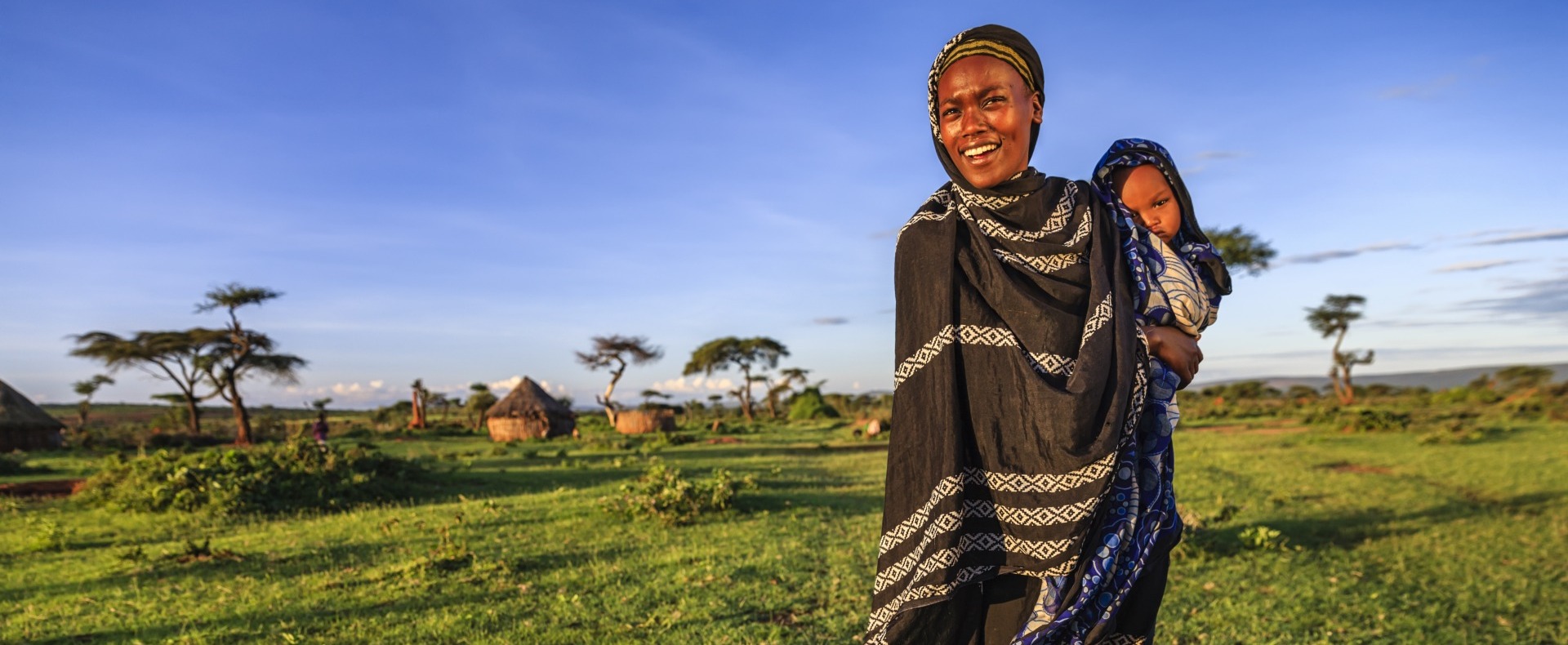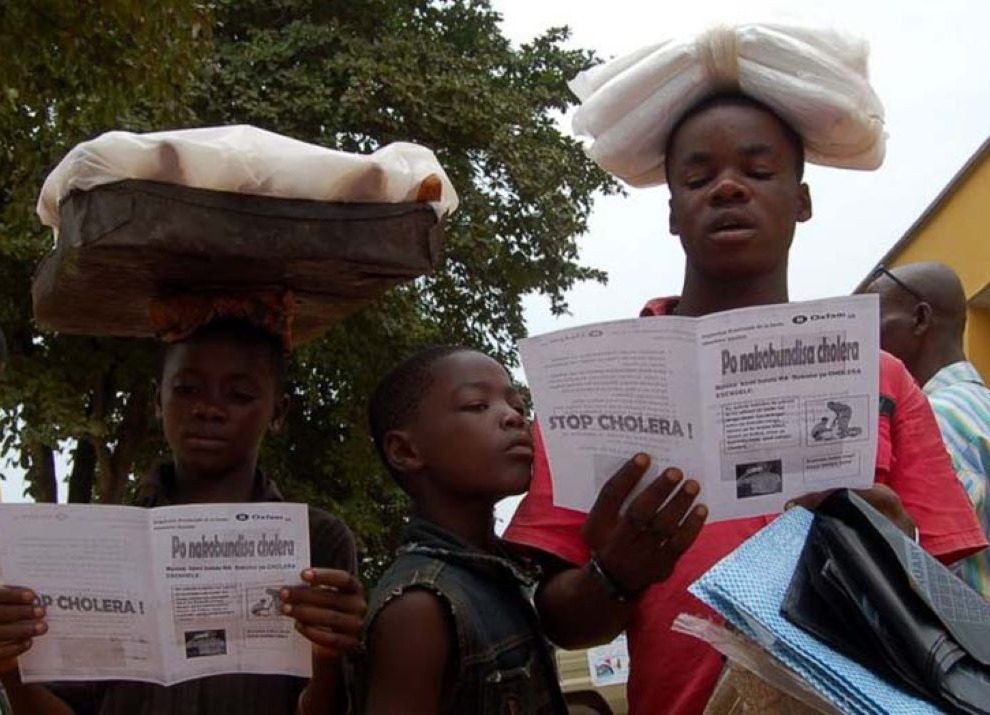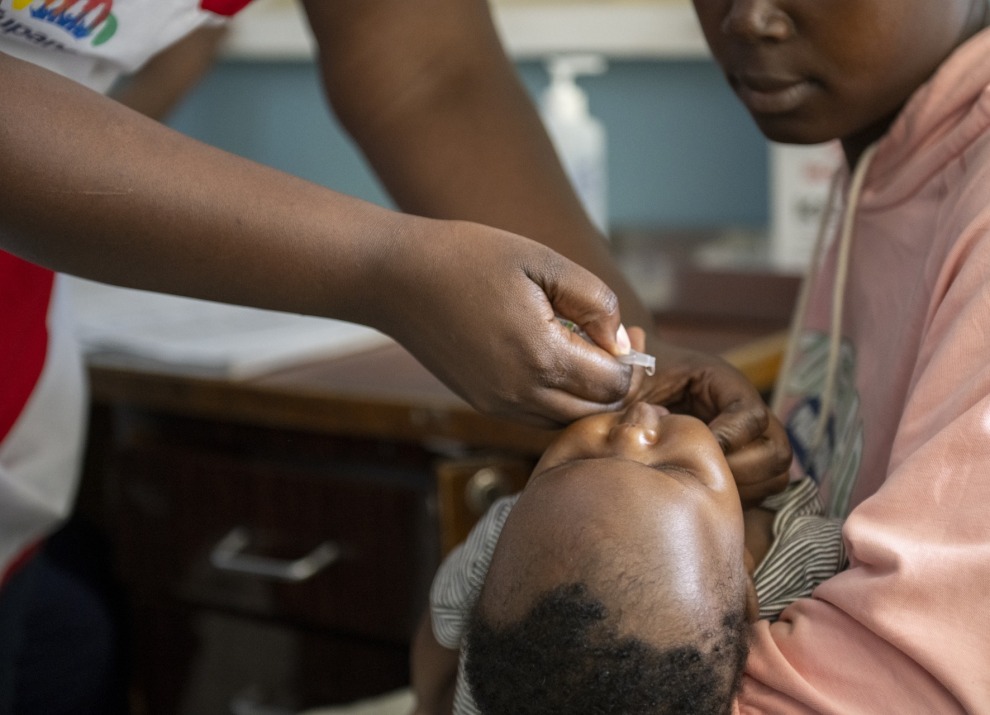
There has been a steady increase in cholera cases in recent years, with countries experiencing concurrent outbreaks, marking the disease as a priority area. In 2024, Sabin partnered with the Kenya Medical Research Institute (KEMRI) to optimize the use of the oral cholera vaccine.

Cholera FAQ
What is cholera?
Cholera is an acute diarrheal infection caused by ingesting food or water contaminated with the bacterium Vibrio cholerae.
What are the symptoms?
Cholera can cause watery, white diarrhea, vomiting, leg cramps, and restlessness or irritability. While most symptoms are mild or moderate, in rare cases, diarrhea can cause dehydration, which can lead to death if left untreated.
How quickly does a person experience symptoms after infection?
It takes between 12 hours and five days for most people to show symptoms.
How does a person get infected with cholera?
Cholera is caused by ingesting food or water contaminated with cholera bacteria. There is a higher risk of contracting cholera in areas where sewage and drinking water lack adequate treatment, emphasizing the need for proper water, sewage, and hygiene (WASH) infrastructure. Cholera is not likely to spread from person to person or from casual contact with someone with cholera.
Where have cases of cholera been found?
Cholera originated in India in the 19th century and has been detected worldwide, but it is primarily endemic in Asia and Africa.
When was the last outbreak of cholera?
Cholera outbreaks have been on the rise in recent years and countries are experiencing them concurrently, amid a shortage of vaccines. Since the beginning of 2023, more than 824,000 cholera cases and 5,900 deaths were reported from 31 countries across the world (as of March 31, 2024).
Is there a treatment for the disease?
The majority of people who contract cholera will recover successfully after receiving an oral rehydration solution (ORS). Severely dehydrated patients may require intravenous fluids and other antibiotics to provide diarrhea relief.
Are there approved vaccines that can protect against cholera?
There is only one FDA-approved cholera vaccine for those in the U.S.; the single-dose oral vaccine must be given at least 10 days before travel to a cholera outbreak-prone or endemic area.
The World Health Organization has prequalified three oral cholera vaccines. All require two doses for full protection. Depending on the vaccine, required intervals between doses range from a minimum of one to two weeks. The period of protection offered by these vaccines vary from two to three years.
What role is Sabin playing in developing and evaluating cholera vaccines?
In early 2024, Sabin partnered with the Kenya Medical Research Institute (KEMRI) to optimize the use of the oral cholera vaccine. The research will inform vaccination strategies aimed at tackling the global resurgence in cholera as well as acute vaccine shortages.
The project includes a randomized control trial in Kenya to evaluate immune response to various timing intervals between the first and second doses of the vaccine. Additionally, the trial will provide valuable insights into the most recently approved cholera vaccine, Euvichol-S.
Most Recent Outbreak
824,000
Since the beginning of 2023, there have been more than 824,000 cholera cases. (WHO, 2024)
5,900
Additionally, there were about 5,900 deaths reported. (WHO, 2024)
31
These reports stemmed from 31 countries spread across the globe. (WHO, 2024)

We make vaccines more accessible, enable innovation and expand immunization across the globe.






